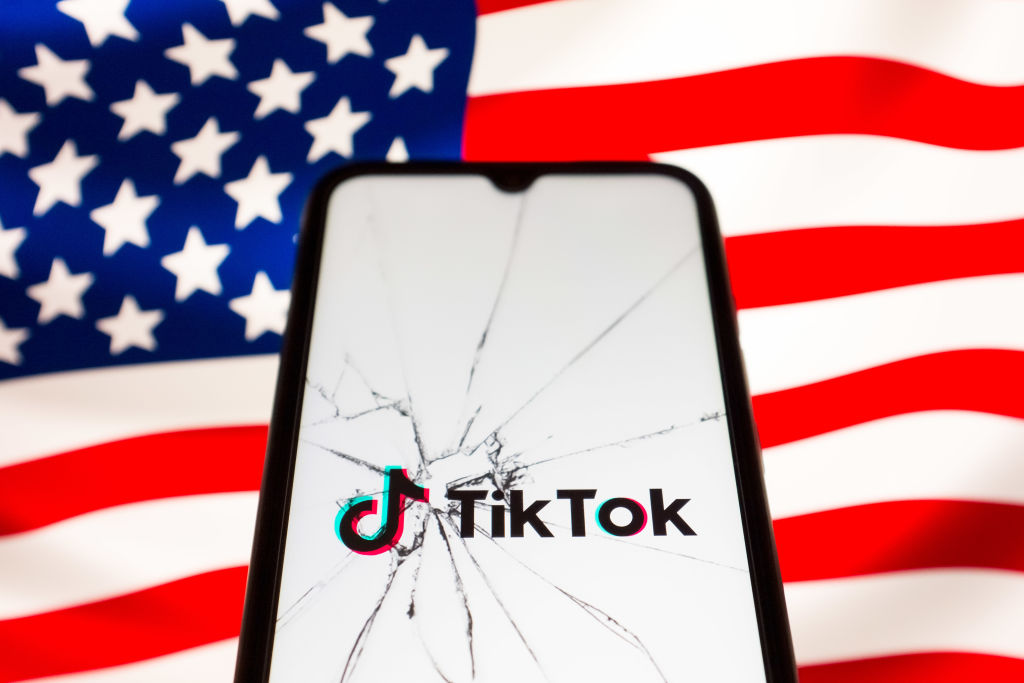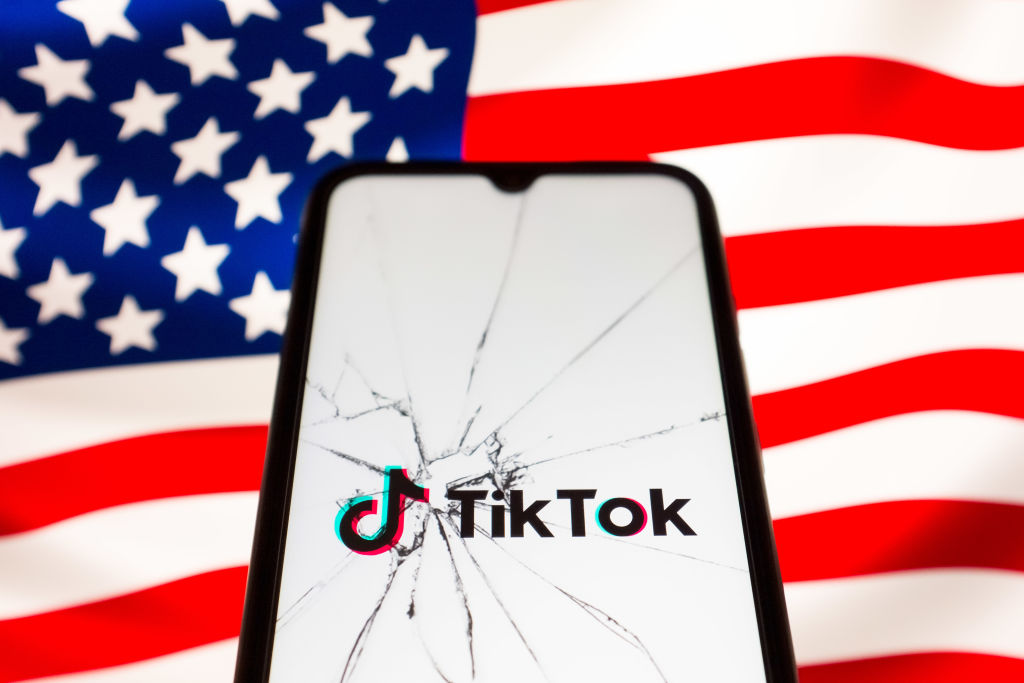
Source: NurPhoto / Getty
This looming U.S. TikTok ban has been clouding the minds of the popular social media platform’s users for months now. Although President Joe Biden makes his latest move to make things official, TikTok’s China-based owner, ByteDance, doesn’t intend to sell. Read more updates on the U.S. TikTok ban inside.
Just two days ago, President Biden signed the TikTok divest-or-ban measure into law. The legislation received an overwhelming bipartisan support in Congress. It gives TikTok’s Chinese parent company, ByteDance, up to a year to sell its U.S. operations or face a ban. If banned, the app would disappear from Apple and Google’s app stores for U.S. phone users forever.
Even with the ultimatum, ByteDance has no plans to sell the social media service. TikTok CEO Shou Zi Chew shared his thoughts with a video posted to the app saying, “the facts and the Constitution are on our side.” He added that TikTok expects “to prevail again,” referring to Montana’s failed effort to ban the app. The state moved and it was blocked by a federal judge in November 2023.
This battle between the app and U.S. lawmakers stems from their fear that it has addictive qualities, causing doom scrolling across the country. the future of the video app in its hands. Lawmakers also moved to pass the ban law out of concern over ByteDance’s ties to China, including fear that ByteDance or TikTok could share data about U.S. users with China’s authoritarian government.
“The idea that we would give the Communist Party this much of a propaganda tool, as well as the ability to scrape 170 million Americans’ personal data, it is a national security risk,” Senator Mark Warner, a Virginia Democrat, said on CBS’ “Face the Nation,” earlier this month.
The beloved social media app has already been banned in a handful of countries. Also, government-issued devices don’t allow the app to be downloaded because they fear the app poses threats to privacy and larger cybersecurity concerns. Countries that have instituted partial or full bans include India, where it has been nationally banned since 2021, and Canada, where devices issued by the federal government aren’t allowed to have the app.
The most interesting fact is that TikTok is also not available in mainland China. CEO Chew has mentioned this in testimony to U.S. lawmakers. Instead, ByteDance offers Chinese users a similar video-sharing app called Douyin, which follows Beijing’s strict censorship rules. TikTok also ceased operations in Hong Kong after a sweeping Chinese national security law took effect.
This potential ban is a major concern for TikTok users, who profit from the platform and have forged their entire careers around it.
Don’t fret. There are potential strategies around the TikTok ban. For tech-savvy social media users, they could resort to using a VPN (virtual private network) or changing the phone location to fool the app stores to keep their downloads. Another option is “side-loading” − downloading and installing a bootleg version of the TikTok app from the internet − but doing so carries the risk of downloading malware. Users could also install a foreign SIM card into their phone to maintain the app.
Will the app be scrapped? We will keep you updated on the latest.

















